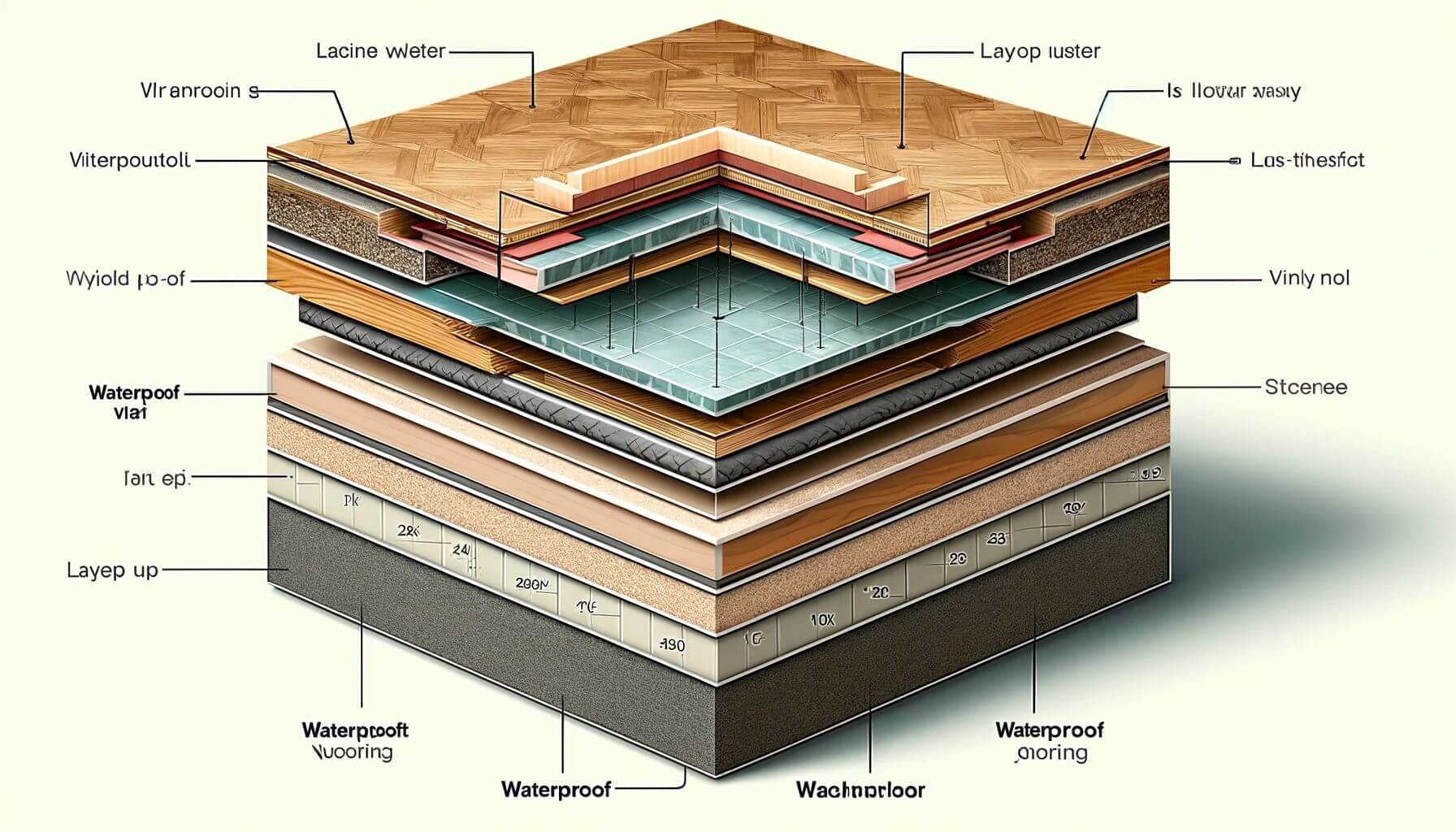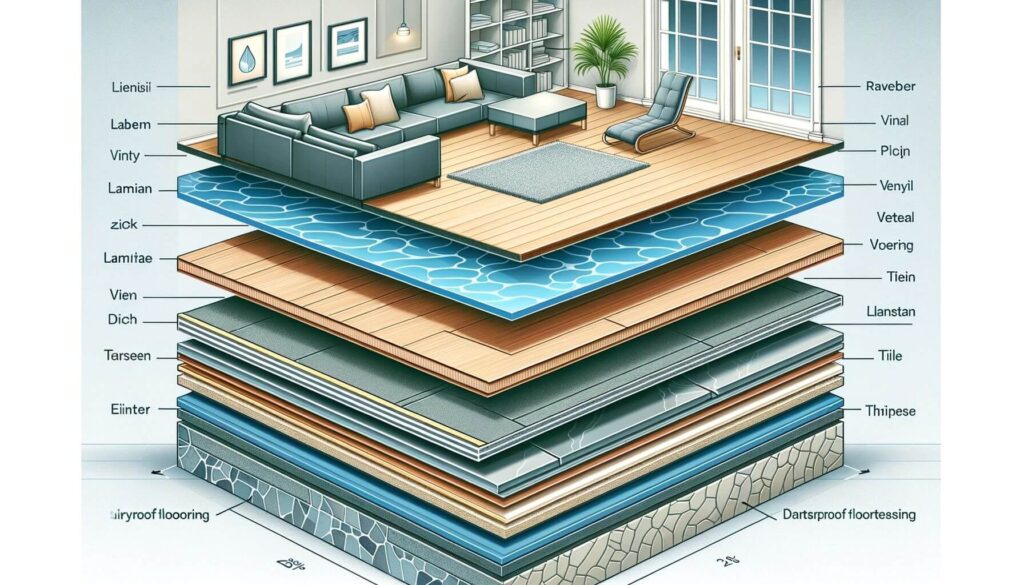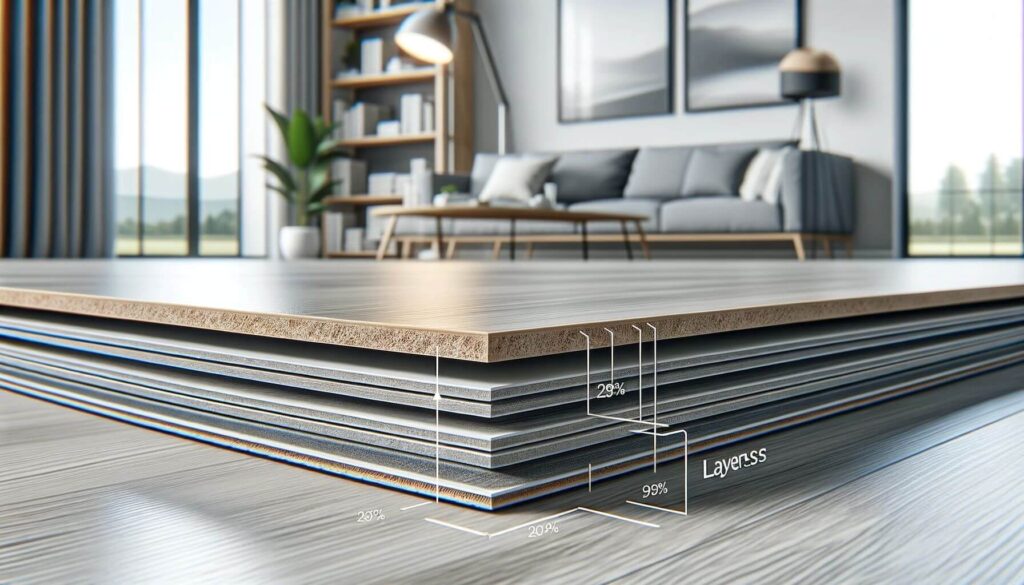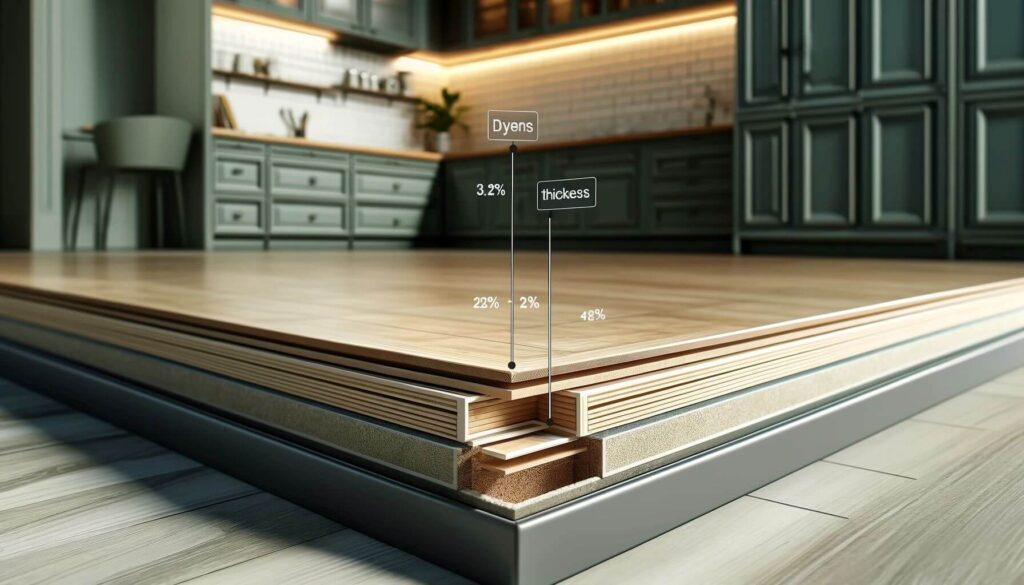
Waterproof flooring thickness is a key factor when deciding on what options to pick for your house. The right thickness ensures durability, comfort, and effective moisture resistance. This article delves into the ideal thickness for various types of waterproof flooring, helping you make an informed decision.
Understanding Waterproof Flooring Thickness

Waterproof flooring thickness typically ranges from 4mm to 8mm. The choice depends on the area of installation and the level of foot traffic. Thicker flooring provides better sound insulation, a more comfortable feel underfoot, and increased durability.
Learn more about different waterproof flooring types at Waterproof Flooring Laminate vs Vinyl.
Vinyl Plank Flooring Thickness

Vinyl plank flooring is a popular choice due to its durability and water resistance. The standard thickness for residential vinyl plank flooring is between 4mm and 6mm. For high-traffic areas or commercial use, thicker planks ranging from 6mm to 8mm are recommended. Thicker vinyl planks offer better sound absorption and a more solid feel.
For more insights on vinyl plank flooring, visit Vinyl Plank.
Laminate Flooring Thickness

Waterproof laminate flooring is another excellent option. Laminate flooring typically ranges from 6mm to 12mm in thickness. For waterproof laminate, a thickness of at least 8mm is advisable for areas prone to moisture, such as kitchens and bathrooms. Thicker laminate flooring provides a more realistic wood look and enhanced durability.
Explore more about waterproof laminate flooring at True Waterproof Laminate Flooring.
Tile Flooring Thickness

Ceramic and porcelain tiles are naturally water-resistant and come in various thicknesses. The standard thickness for floor tiles is usually around 8mm to 12mm. Thicker tiles provide more stability and are less prone to cracking under heavy weight.
For design inspiration, check out our Home Improvement Interior Design.
Importance of Subfloor Preparation
The thickness of your waterproof flooring also depends on the condition of the subfloor. A well-prepared subfloor ensures better performance and longevity of the flooring. It is crucial to ensure that the subfloor is smooth, clean, and dry before installation.
Learn more about subfloor preparation and maintenance at Foundation Structural Integrity.
Waterproof Flooring in High-Traffic Areas
In high-traffic areas like hallways and living rooms, thicker waterproof flooring is beneficial. It withstands heavy use and provides a comfortable walking surface. Vinyl or laminate flooring with a thickness of at least 6mm is ideal for these areas.
For more information on durable flooring options, visit Innovative Masonry Solutions.
Installation and Maintenance
Proper installation is key to ensuring the effectiveness of waterproof flooring. Using the appropriate underlayment can enhance the performance and longevity of the flooring. Regular maintenance, such as promptly cleaning up spills and using the right cleaning products, also plays a vital role.
For tips on installation and maintenance, check out DIY Pergola Kit for Outdoor.
Comparing Different Flooring Materials

While vinyl and laminate are popular choices, it is worth comparing them with other materials like tile and concrete. Each material has its unique benefits and ideal thickness for different applications. Making an informed choice ensures you get the best performance from your waterproof flooring.
Explore more flooring options at What Flooring is 100% Waterproof?.
Environmental Considerations
When selecting waterproof flooring, consider the environmental impact. Many modern flooring options are made from eco-friendly materials and offer sustainable solutions. Choosing environmentally friendly products can reduce your carbon footprint.
Learn about eco-friendly building materials at Eco-Friendly Building Materials.
Final Thought on Waterproof Flooring Thickness
Choosing the right thickness for waterproof flooring ensures durability, comfort, and effective moisture resistance. Vinyl plank flooring is ideal with a thickness between 4mm and 8mm, while laminate flooring works best at 8mm or more. Tiles generally range from 8mm to 12mm, providing stability and durability. Always consider the specific needs of your space and the condition of your subfloor before making a decision.
For further advice on waterproof flooring, visit our home improvement blog



